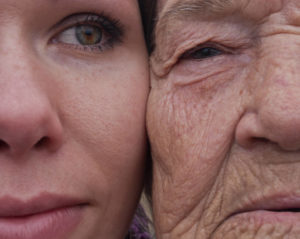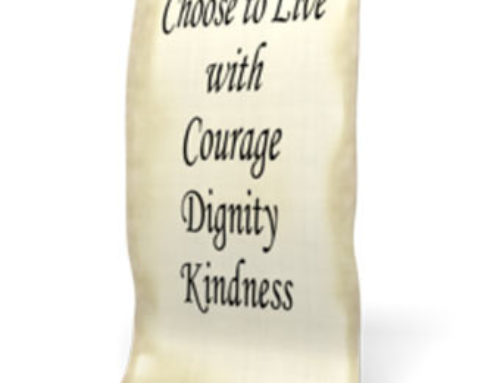Question: Is Dementia Reality Real?
A: Yes, It’s Real – It’s Just a Little Different From Your Reality
 When people who are caring for individuals with Alzheimer’s don’t understand that their care receiver’s dementia reality is just as real as their own reality, communication can become confusing, upsetting and frustrating for everyone.
When people who are caring for individuals with Alzheimer’s don’t understand that their care receiver’s dementia reality is just as real as their own reality, communication can become confusing, upsetting and frustrating for everyone.
My friend Dorothy Tucker was a nurse who worked in nursing homes and on Alzheimer’s units for 30 years. When she first started caring for people with dementia, the medical community was promoting Reality Orientation, which was a method of trying to keep people grounded in the current time and place.
It was believed that repeatedly informing and correcting their residents about things that had happened in the past and what was real in the present moment might help them retain their memories and their grip on reality.
Dorothy learned pretty quickly on her own that trying to make a person with dementia see the world through her eyes, only led to greater confusion and conflict. She kept a journal off and on during her 30 year nursing career. I am especially fond of this particular entry:
“Every day when I come to work, I believe with all my heart and mind that I am a nurse who works in a nursing home. The residents have different ideas about who and where I am. If I insist my reality is the only acceptable one, I have no success in gaining cooperation from them.
I’ve learned the key is to discover how I fit into their vision of the moment. On any given day, I can be fifteen or more different people. Sometimes I’m a mama or an aunt. I can be a teacher at school, a store clerk, or a best friend. Sometimes I’m the bully who harassed them on the way home from school.
Once I discover who I am in their mind, I act accordingly. When I’m the bully, I go away until I morph into someone they liked better. The fun part for me is that I have learned to really become that person in that place. I feel like their mother, aunt, friend or store clerk. I can actually see the kitchen table with its checkered tablecloth, the shelves in the store, and swings on the playground. In those moments, their reality becomes my reality.”
If you are caring for someone with a dementia-related illness, you might find that adopting Dorothy’s attitude toward reality could make communication much less stressful for both you and your care receiver.
A few years ago my friend Emery, who is a retired CPA, was exasperated because her mother had gotten into a pattern of calling every morning at 6:00 a.m. In an absolute panic she’d cry, “My money is gone! The bank has stolen all my money! I don’t have anything left! What am I going to do? I’m broke!”
Every morning Emery would try to reassure her mother that everything was just fine. She would list the most recent checks and deposits as well as the balances in her mother’s checking and savings accounts. However, the more she tried to deal with her mother in a logical and rational manner, the agitated her mom became.
I suggested that she react to her mother as if it were true. I said, “If she calls you tomorrow, try saying, “Oh, my God, Mom! That’s horrible! I can see why you’re feeling so panicked! I would too! We’ve got to get to the bottom of this! I’m going to hang up right now. I’m going to call the bank and find out what’s happened. I’m going to demand an explanation, and I will make sure they put back every single penny that is missing!’”
After three days of repeating the same conversation and validating her mother’s feelings, Emery’s mother stopped calling.
When we look at a brain scan with an expert, it’s easy to see the areas that have been affected by diseases like Alzheimer’s. The tricky thing is to understand and respond to the ways that damage has impacted the behavior of people we love. If we can accept that dementia does create a different kind of reality, perhaps we can be like Dorothy and learn see the world through the eyes of our care receivers. When we can step out of our own reality and into the current reality of a person with dementia, we might help reduce their stress, which could allow us to experience some unique and joyful moments.
For more information on understanding and coping with dementia-related challenging behaviors, please click on this link to my website: Dementia Issues




